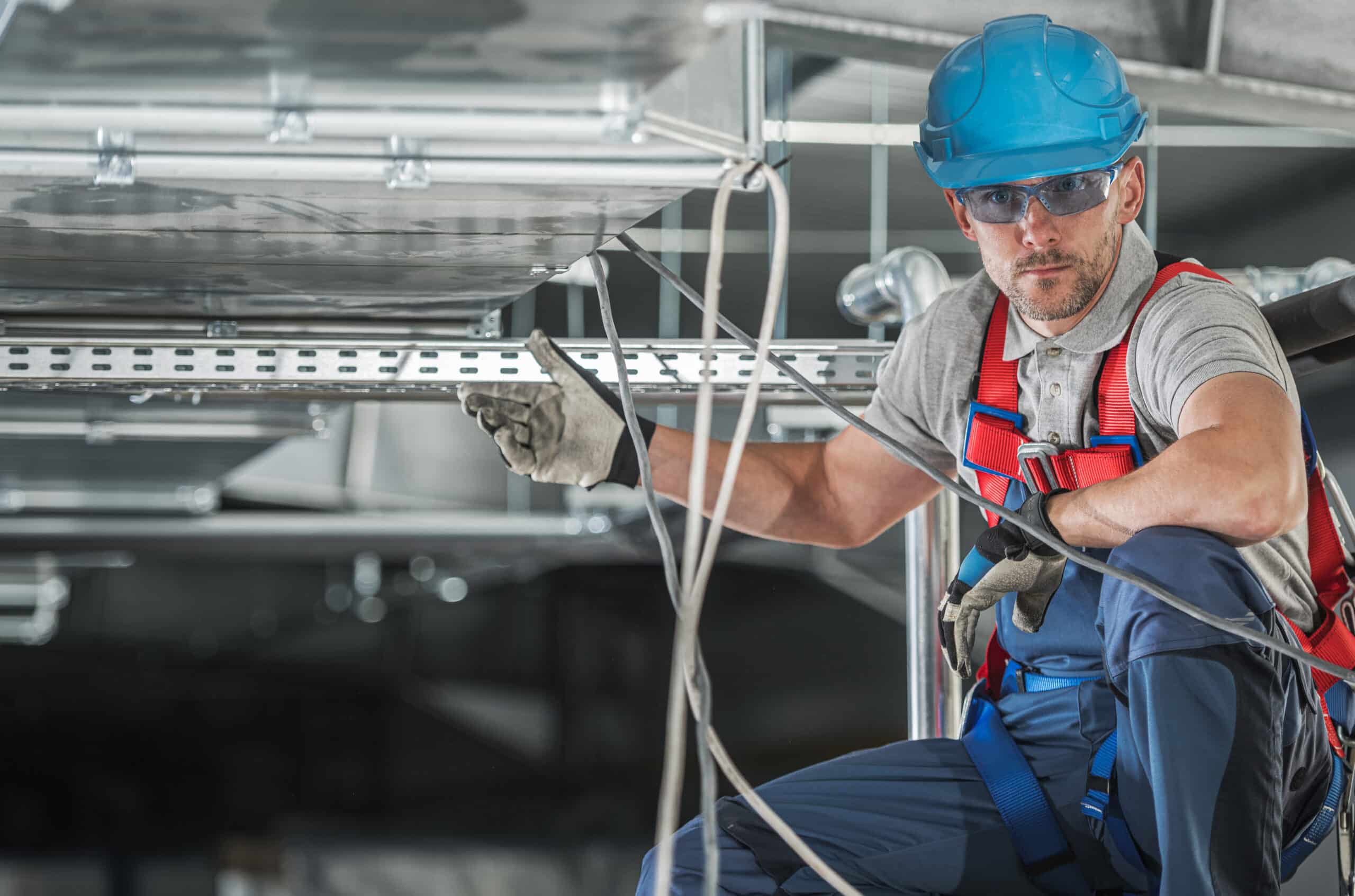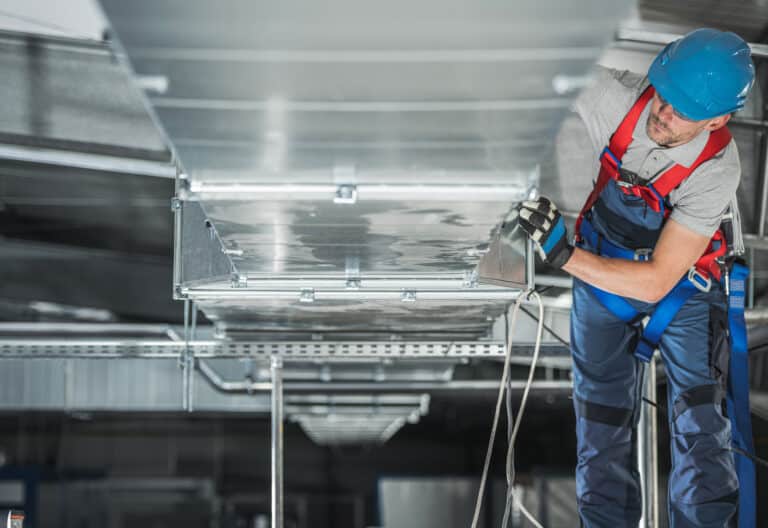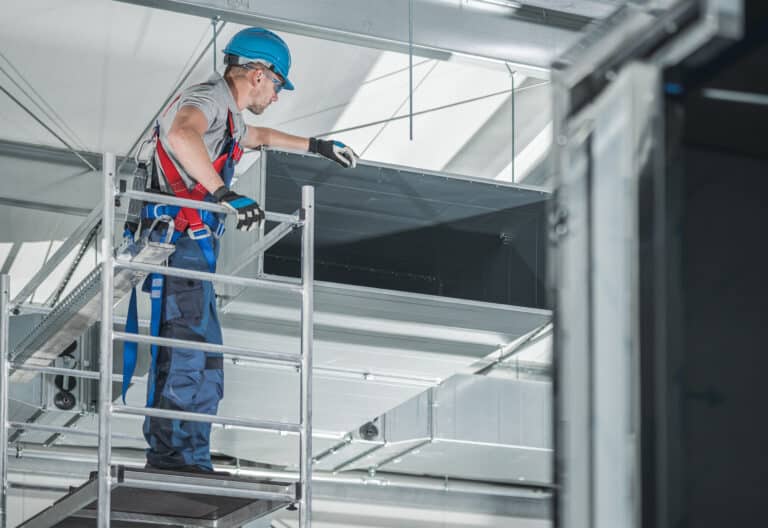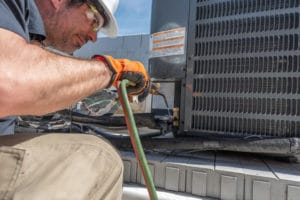Have you heard about HVAC technicians and want to know what is an HVAC Technician?
Or maybe you want to learn more about the career.
HVAC technicians are in demand right now, and in this guide, we cover everything about HVAC techs, from their –
- Day-to-day duties
- Job Description
- Top Skills
- Step-by-step blueprint on how to start your HVAC Tech Career and much more.
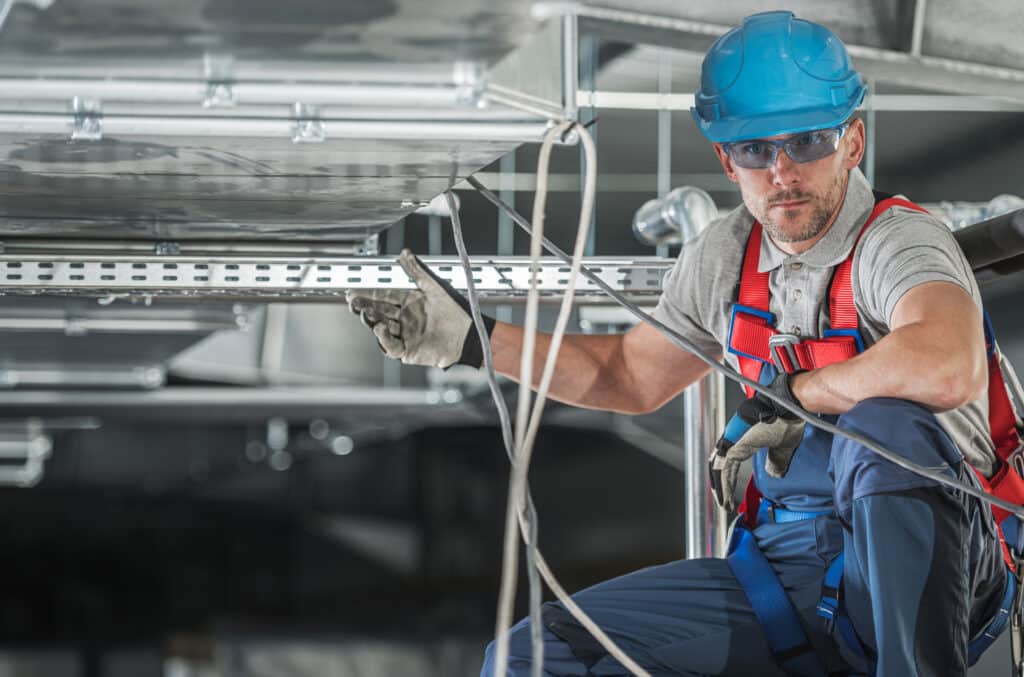
The professionals who work in Heating, Ventilation, and Air Conditioning are called “HVAC Technicians.”
In some cases, they also maintain the operations related to refrigerators, which is why they are also known as HVACR Technicians.
What Do HVAC Technicians Do?
Here are the top tasks that an HVAC Technician has to oversee –
Testing
HVAC Techs are responsible for testing various units, components, and different electrical circuits. They ensure that the HVAC units function properly in commercial and residential settings.
When you get a contract as an HVAC Tech, your initial job would be to test out the system. The system could be a heating unit or a cooling unit, or a combination of the two.
Based on your diagnosis, you can further suggest repair or replacement.
Installation
As an HVAC technician, installation is one of your primary responsibilities. It includes several steps to properly install heating, ventilation, and air conditioning systems.
Before installing a system, you have to ensure several steps like –
- Assessment
- Equipment Selection
- Testing & Commissioning
- Maintenance
Overall, for smooth installation, a thorough understanding of HVAC systems is required, as well as the ability to design, plan, and install complex systems efficiently and effectively.
Maintenance & Servicing
An HVAC Technician has to ensure that the systems are well-maintained & are serviced timely.
HVAC Technicians are responsible for conducting routine inspections, repairing, cleaning, and making sure that the systems are running properly.
This can include:-
- Replacing Air Filters
- Replacing Refrigerant Levels
- Cleaning of Condenser Coils
- Checking of Electrical Connections
- Lubricating Moving Parts
Troubleshooting & Repair Work
Troubleshooting and repair work is one of the most essential tasks for an HVAC Technician.
For example, a technician will conduct multiple diagnostic tests when a system isn’t operating well. And once a technician spots the problem, he will be responsible for developing a plan to repair the system.
Sales
As a Technician, sales can be a big part of your day-to-day tasks as you have to convince potential customers to buy a product.
For example, you’re working in a residential unit, and some parts need replacements. At that point, your job is not just to repair the system but also to convince the customer to buy the parts from you. (or your employer/contractor)
In most cases, HVAC Technicians are also seen offering tools, equipment, or services to their customers.
Here is more on: What does an HVAC technician do?
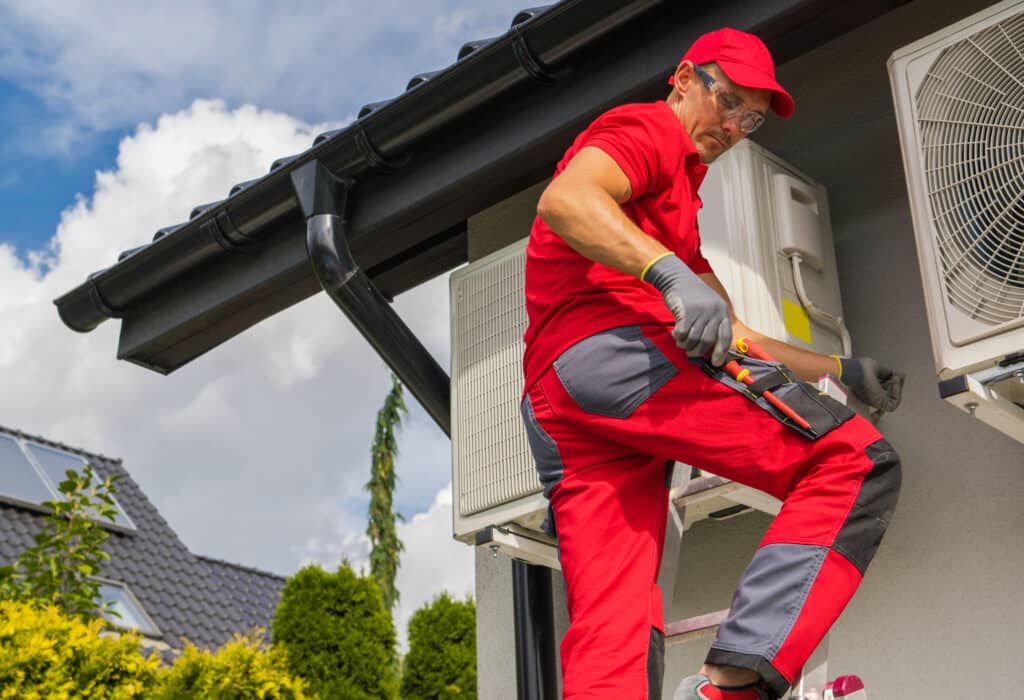
Day-To-Day Duties
HVAC Technicians help customers with different issues and assist in maintaining systems respectively.
Let’s have a look at their day-to-day job roles below:-
- Reading blueprints and the specifications of HVAC equipment
- Assembling and installing HVAC/R units in residential or commercial buildings, cutting or drilling holes, installing solar panels, humidistats, and timers
- Connecting HVAC systems to electrical, water, and fuel sources,
- Ensuring that the units work perfectly,
- Testing HVAC components and systems in accordance with the manufacturer’s specifications,
- Testing piping or tubing joints for leaks,
- Troubleshooting common HVAC system issues,
- Cleaning and replacing air filters, and cleaning ducts Selling service contracts
Also read: HVAC technician job description
How to Be an HVAC Technician
Step 1- Completing your Education/Training
Like any other career, to be an HVAC Technician, you are required to complete your education. For that, you have to enroll in a school or training program.
You can get your training through three different sources –
- Associate Degree
- Diploma/Certification Program
- Online Certification Programs [Recommended]
Associate Degree
- Program Type – Full-Time On-Campus Program
- Duration – 2 Years
- Tuition – $10,000 to $30,000/year
Getting an associate degree has been a popular option for an HVAC Technician. You can easily get an associate degree by enrolling yourself in a full-time program at a renowned university.
Usually, an associate degree in HVAC Tech is up to two years and can cost you around $10k-30k per year. You can find several universities offering associate degree programs.
Diploma/Certification Program
- Program Type – Full-Time On-Campus Program
- Offered By – Trade Schools, Community Colleges, or Technical Schools
- Duration – Upto 1 Year
- Cost – $8,000 – $20,000
If you want to complete your education faster, you can opt for a Diploma/Certification Program. A diploma program can assist you in learning the basics that are required for this profession.
Community colleges or trade schools offer diploma programs for HVAC technicians, and you can enroll in a program locally.
These programs are also full-time, on-campus programs, where you have to drive to classes several times a week.
Online Certification Programs [Recommended]
- Program Type – Online (Self-Paced)
- Duration – 4-12 Months
- Cost – $5,000 to $10,000
You can get your foundation in HVAC Tech through an online program. Online HVAC training programs are highly recommended because they are faster (which means you can start your career faster) and affordable.
With an online certification program, you can learn at your own pace. An online program can be completed within 6-12 months.
Note – Make sure the online program you enroll in is accredited.

Step 2 – Getting Hands-On Experience
After you are done with your education, the next step is to get some hands-on experience. If you’ve completed an online program, you need to find an externship.
An externship as an HVAC Technician will help you learn practical skills and network with renowned technicians.
In an externship, you’re placed in a company where you get to shadow other technicians, pick their brains & perform certain hands-on tasks.
After your externship, you can continue with the same company & apply for a job that depends upon your performance.
Step 3 – Get Entry-Level Certifications
You can get a few entry-level certifications to set yourself apart from other HVAC technicians.
For instance, US Environmental Protection Agency i.e., EPA, expects you to have certifications for purchasing and handling of particular refrigerants.
Sec 608 Certification Offered by EPA has been made mandatory by many contractors & organizations across the country.
Another good certificate to have is NATE’s Ready-to-Work Certificate. NATE is the gold standard for certifying HVAC technicians. You can get specialized certifications as you gain more experience working as an HVAC Technician.
Now you might wonder, How do you get these certifications or certificates?
To get these certifications, you have to sit for an exam, and once you clear that exam, you get that specific HVAC technician certification.
As you gain more experience, you can sit for specialized Certification (offered by NATE), and once you clear those, you’ll be a Certified HVAC Technician.
Step 4 – Looks for Jobs
Finally, after you have some certifications under your belt, you can start applying for jobs. You can find jobs at –
- Local HVAC Companies- You can start working at local HVAC companies or organizations as an HVAC Technician.
- Contractors- If you’re just starting out, your first job will likely be offered by a contractor. After working for years, you can start your own business as an HVAC contractor.
If you’re an HVAC Technician, you can decide whether you want to work in a residential setting or a commercial setting. We recommend working in both settings for years, and after that, you can pick a side.
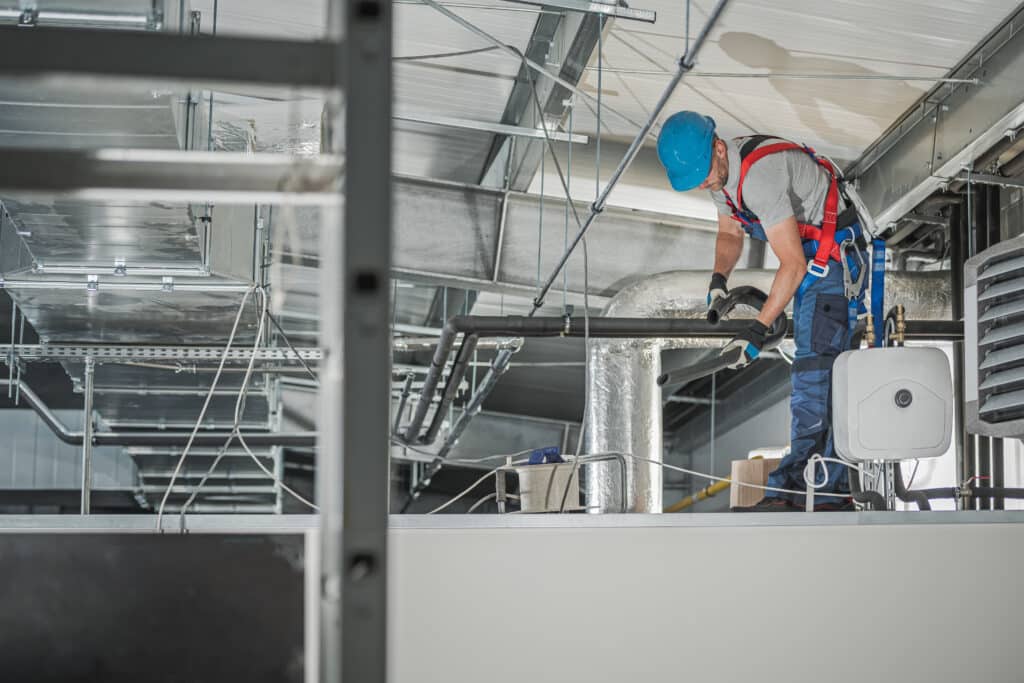
HVAC Technician Salary
According to BLS, the median salary for HVAC Technicians is $48,630 per year. If you’re just starting out, your entry-level salary could be around $35,000.
The median salary and how much you can make depends on where you live. For more details, check out our in-depth guide on HVAC Technician Salary.
Here’s more on HVAC technician salary.
HVAC Apprenticeships
An apprenticeship is recommended for HVAC techs. Through an apprenticeship, you’re taught hands-on work, and you’re also paid a salary.
In an apprenticeship, you generally work under the supervision of a senior technician, who teaches you about different HVAC systems and assigns tasks.
Opportunities for HVAC apprenticeship programs are provided by a number of regional organizations, such as the Air Conditioning Contractors of America or the Associated Builders and Contractors. Different organizations might exist depending on where you live.
IMPORTANT NOTE: Before you apply for an apprenticeship, it is recommended to complete an online HVAC training program. Apprenticeships are limited, and having a strong foundation in HVAC Tech could likely give you an edge while applying.
HVAC Licensing Requirements
While a License is not always required, and most HVAC Technicians don’t have that. But things can be different in different states. Make sure to check with your local contractors and obtain the necessary licenses.
Even though licenses are not mandatory, certifications like Section 608 are required in most states.
Also read: HVAC technician license
Pros of Being an HVAC Technician
Let’s have a look at some of the pros of being an HVAC Technician:-
- Work and Live Anywhere
As an HVAC Technician, you can work anywhere in the country and maintain a work-life balance easily.
The majority of indoor settings need technicians to maintain cooling or heating systems, and hence there is a huge demand for HVAC Techs.
- Problem-Solving
There are new circuits, appliances, and technologies each day that HVAC Technicians have to deal with; hence as an HVAC Technician, you get to learn every day.
- Job Satisfaction
As an HVAC Technician, you get to work and satisfy client requirements on a day-to-day basis.
When the task is completed, seeing the satisfaction in the eyes of a customer can be extremely gratifying.
Cons of Being an HVAC Technician
Here are a few possible cons of being an HVAC technician –
- Long Hours
Generally, as an HVAC Technician, you’ll work for long hours fixing appliances which takes a lot of time most of the time.
In this career, you’ll rarely find someone working fixed hours.
Your working shift is over only when the tasks for the day have been performed.
- Safety Hazards
As an HVAC Technician, you’ll have to deal with appliances on a day-to-day basis, and you’re prone to safety hazards and accidents.
Make sure you comply with the suggested safety norms while working.
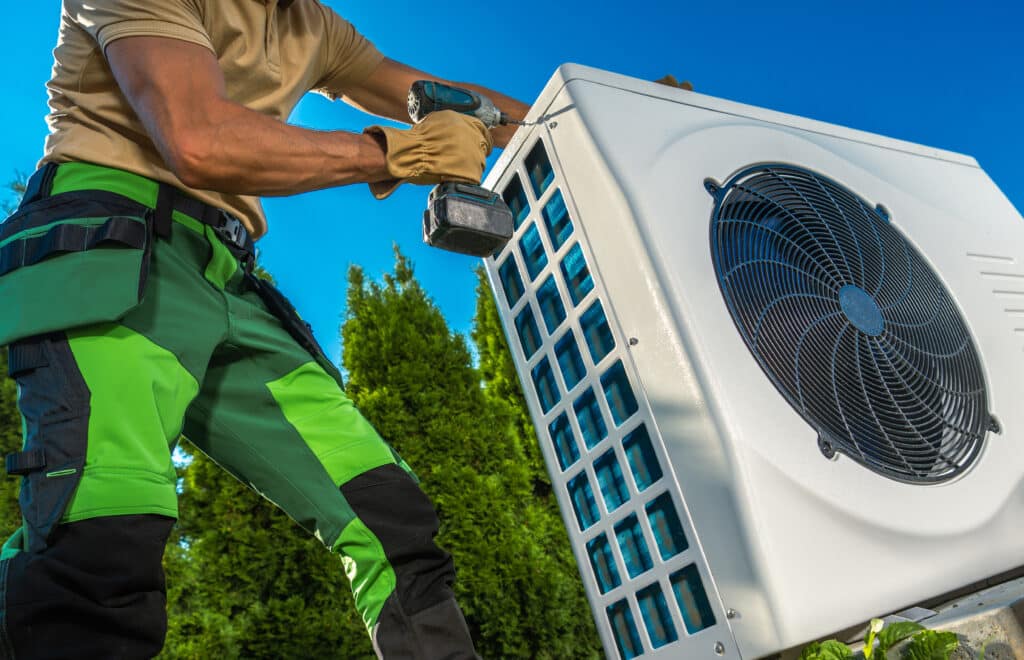
Competencies of an HVAC Technician
After receiving formal education in HVAC, you’ll be able to:
- Manage frameworks of heating, cooling, and refrigeration.
- Conduct Surveys and further develop the air conditioning framework
- Lead the testing of air conditioning parts in a lab setting
- Comprehend and work with electrical circuits, wiring, and parts
- Work with clients to sort out their concerns
Top Skills you need as an HVAC Technician
As an HVAC Technician, there are certain skills that you need to master. Let’s have a look below:-
- Mechanical skills- For this role, you should be ready to get your hands dirty.
As an HVAC Technician, there would be a lot of mechanic work, including assembling, installing, troubleshooting, repairing, and working on complex systems.
Hence, you must be equipped with hands-on mechanical skills.
- Attention to Detail– Most of the time, you will be required to deal with systems and tools. As an HVAC Technician, minute-to-minute details regarding any tools or techniques must be taken into account.
You should be the person that can be trusted to maintain the records and make sure they are accurate.
- Customer Service Skills- Working with contractors or in a company, you will be expected to be comfortable around people.
As a technician, you interact with a lot of people, and hence your communication and people skills need to be on point.
- Time-Management Skills- An HVAC Technician receives a number of customer calls in a day. Thereby, you must be able to manage your time well.
- Troubleshooting- One of the main responsibilities of an HVAC Technician is to troubleshoot various issues related to systems or appliances.
As an HVAC Technician, you’re required to do that in all kinds of settings.
- Physical Attributes- As an HVAC Technician, you will be required to lift and carry heavy equipment, climb ladders, etc.
Technicians are required to have the physical attributes to perform these duties.
Related Resources:
- HVAC vs Electrician
- HVAC service technician
- HVAC technician salary Texas
- HVAC technician salary California
